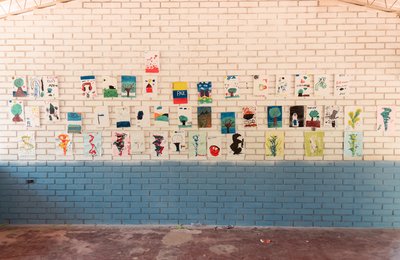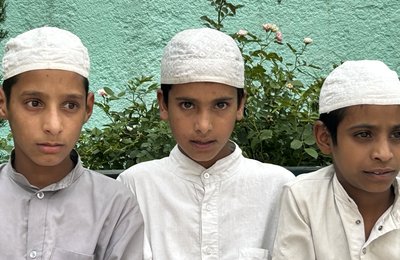 Children in Niger. Image credit: Alessandro Vannucci
Children in Niger. Image credit: Alessandro VannucciFaced with increasing tension and security threats in Africa – and the problems they might cause for development in its member states – the Economic Community of West African states has inaugurated a new peacebuilding project: the “Consolidation of Ecowas policy to support the promotion of education on human rights, citizenship, democracy and regional integration.”
The project will operate in all 15 Ecowas member states, but in particular those that have experienced conflict. The approach takes as its inspiration the founding charter of Unesco – highlighting that “since wars begin in the minds of men, it is in the minds of men that the defences of peace must be constructed.”
Ecowas has in this spirit launched an online self-study course, on peace education and training for schools to use in its region.
Edited with Unesco’s help, the manual contains seven modules, on:
- Peace culture and conflict management
- Human rights
- Civic culture and citizenship
- Democracy and good governance
- Gender and development
- Public health, the environment and sustainable development
- Regional integration
There is a strong focus throughout on a key set of values:
- Tolerance
- Communication
- The importance of gender
- Cooperation
- Critical thinking
- Social responsibility
The Nigerien context
The manual is a step in the right direction and could certainly help train a new generation of citizen peacebuilders. In Niger, the adoption of this manual will take place in a specific context. Demonstrations organised by students within the framework of the Union de Scolaires Nigériens have often led to violence, including the destruction of goods and property, such as traffic lights, street furniture and cars and other vehicles.
This has often led to the arrest of students, and endless trials which hold up their academic and personal development.
At the regional level, if Niger has for a long time been considered a welcoming and relatively peaceful country, it has in recent years seen armed conflicts linked to regional, ethnic and political claims.
While it may be true that these young people are recruited because of the lure of easy money, many analysts agree that they also have little in the way of education or training on the benefits of peace.
Nigerian teachers and academics are quickly familiarising themselves with the new manual, which builds on a discipline already well integrated into Nigerien education – moral and civic duty, or citizenship.
The arrival of the new course is therefore a welcome addition to African social values such as respect for elders, the rejection of lying and stealing, and the value of work and bravery.
Classroom concepts: training peacebuilders of the future
Students in primary schools in particular will now have lessons and group work based on all of these concepts, working towards creating a national culture of peace.
For example, each morning half an hour of class will be dedicated to discussing ideas such as tolerance, pluralism, respect for different views and the role of citizens in public life.
Clearly, it is premature to speculate on the impact of such work. But the idea of inculcating these values into young people can only help see the emergence of a new generation, committed to open-mindedness and the value in living life as part of a group, without destroying the peace and prosperity of others.
Beyond this, there will be an inherent value in the eyes of young people who have already been affected by conflict and violence, who have seen tragedy and death. Working to improve the future is one way of healing the wounds of the past.











